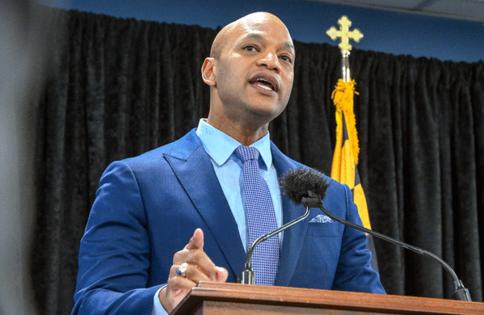Maryland launches multimillion-dollar quantum computing partnership
Published in Science & Technology News
BALTIMORE — Maryland is partnering with a Department of Defense agency in a multimillion-dollar effort aimed at making College Park the global “capital of quantum,” an emerging field of computer science that some believe could be revolutionary.
Gov. Wes Moore, who unveiled the initiative on Monday, pitched quantum computing as an economic development engine that will help Maryland attract and retain employers in fields such as life sciences, information technology, and aerospace and defense industries.
However, some physicists have questioned whether the technology will truly be transformational.
One focus of the deal with the federal Defense Advanced Research Projects Agency, or DARPA, will determine whether or not quantum science, the study of matter and energy, can evolve into quantum computers that will then solve complicated problems better and faster than current technology.
The agreement establishes the “Capital of Quantum Benchmarking Hub” at the University of Maryland’s Applied Research Laboratory for Intelligence and Security, where researchers will test and evaluate quantum computing prototypes and systems for national security and commercial applications.
Monday’s launch was held at the research lab where it will be housed, in the university’s “Discovery District,” a developing government/industry research park near the College Park campus.
Potential applications include environmentally friendly batteries, pharmaceutical development and cybersecurity as well as advancements in health care, finance, transportation and energy.
Moore described Monday’s announcement as the next chapter in his economic growth initiative to establish a “Capital of Quantum” hub in College Park in partnership with the university and College Park-based quantum computer maker IonQ,
The agreement does not establish specific funding levels, DARPA said. The agency and the state have agreed to provide matching contributions of up to $100 million each over a four-year period. Moore has set a goal of attracting $1 billion in public and private investment in the quantum sector by 2030.
The partnership “will make Maryland the first quantum hub on the entire East Coast,” said Moore, a Democrat. “There’s not a single thing we do in our everyday lives that quantum computing can not or will not have some form of impact in terms of making life better.”
It will bring together scientists from DARPA and the university’s Discovery District “to explore the limits of what’s possible in quantum,” he said.
Joe Altepeter, DARPA’s program manager for the microsystems technology office, said Maryland is the second state to join the agency’s quantum benchmarking initiative, launched last year, “to try to separate hype from reality in quantum computing.”
That federal initiative is looking at potential applications for quantum computers, whether they can become essential industrial tools and if they can be built over the next 10 years.
“If I think of the ten smartest physicists that I know, I would say half of them are convinced this is going to be the most important technology of the 21st century,” Altepeter said. “But the other half are actually convinced that not only are you never going to be able to build a quantum computer, but even if you did, there’s never going to be anything better than your laptop computer.”
Moore has been promoting Maryland as a hub for quantum, most recently during a trade mission to Tokyo where he was accompanied by IonQ Chairman Peter Chapman as part of a 25-member traveling delegation.
During that trip, Chapman showed off a small golden quantum processor and talked about the computational power it would achieve in advancing medical, financial and AI fields.
“This is our next-generation chip,” Chapman told The Sun during that trip. “If you were to take all the cell phones in the world and combine them together and put it together and make it one big supercomputer, it would be just one of these chips.”
Darryll J. Pines, president of the University of Maryland, said Monday the new initiative will help advance the university’s long-standing commitment to cutting-edge research and national security. The university has been working on quantum research for 35 years and has more than 200 researchers at 10 quantum-focused centers.
Altepeter said the agency’s federal quantum benchmarking initiative aims to build the world’s largest and most qualified independent quantum computing test and evaluation team.
The agreement with Maryland is similar to one reached last year with the state of Illinois. That partnership established the Quantum Proving Ground, a new facility for quantum testing and evaluation, which will be located at the Illinois Quantum and Microelectronics Park on the site of the former U.S. Steel South Works in Chicago.
Matching federal support with state funding — in states that have launched and funded quantum computing efforts — helps ease cost burdens and validate a range of quantum computing approaches, Altepeter said.
_____
(Sun reporter Sam Janesch contributed to this article.)
_____
©2025 Baltimore Sun. Visit baltimoresun.com. Distributed by Tribune Content Agency, LLC.







Comments